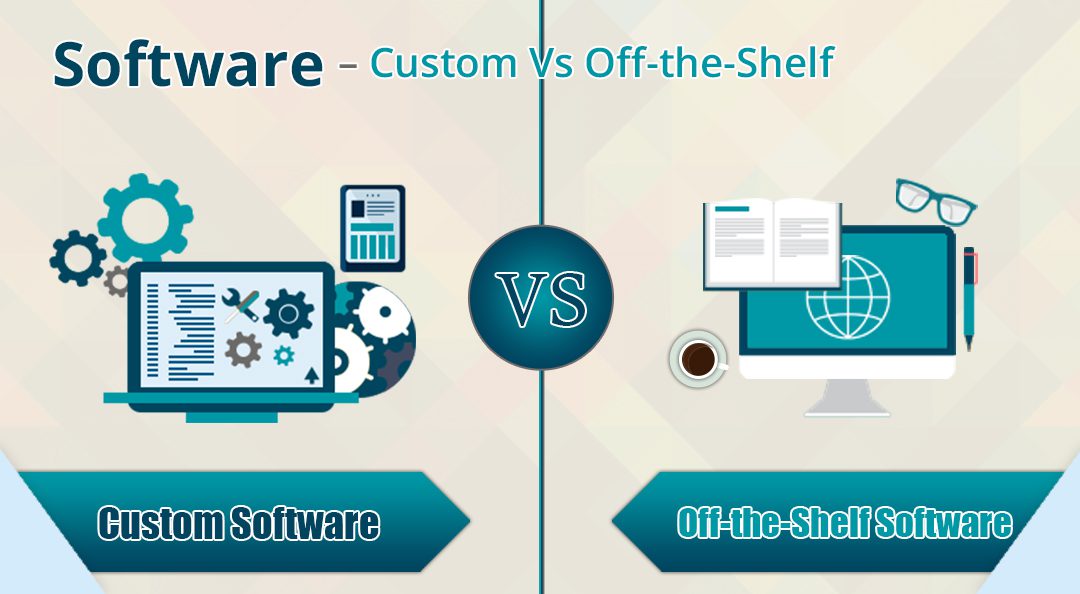As technology becomes ever-more integral to businesses of all sizes, it’s no surprise that there’s growth in IT budgets. Yet, even as IT budgets expand, many businesses continue relying on outdated legacy software or almost the right software for key processes.
Basic off-the-shelf software might prove fine for basic optical character recognition and editing a photo once in a while. It’s not necessarily the best choice for business-critical processes.

Software should improve efficiency and support workflow. If your software doesn’t accomplish these things, it’s time to consider a custom software solution. Let’s jump in and look at some of the key benefits of custom software.
1. Tailored for Your Needs
Many businesses start out with an off-the-shelf software solution because it’s inexpensive and every dollar counts. After a few years, these same businesses often stick with that software despite it not really meeting their needs.
A custom software solution will do exactly what you need it to because it’s built for a purpose. You tell the programmer the exact functions you need. They code those functions into the software.
2. Integration
Some businesses find an off-the-shelf solution that becomes indispensable. In those situations, the challenge often becomes finding other software that will integrate with that indispensable software.
As with building in tailored functions, you can give your programmer a list of programs with which the custom solution must integrate. Then, the programmer can use existing code that facilitates integration or custom code the integration features.
3. Productivity Improvement
Ever try fixing something at home when you don’t own the right tools? You may eventually get the job done, but it always takes longer than it should.
When you give your employees software that doesn’t do exactly what they need from it, they must find workarounds. Every extra step in the process diminishes productivity.
Custom-built software gives employees the tools to do the job right from the get-go. They work faster and there are fewer opportunities for human error.
4. Security
Every piece of off-the-shelf software comes with one basic security flaw. Anyone with a credit card can purchase a copy. That includes hackers looking for weaknesses they can exploit.
They can spend as much time with the software as they need to find weak spots that give them a window for data theft.
A custom solution doesn’t create this security problem. You own the main copy of the software, and no one else can buy it. That means no hacker can dissect the code or functionality at their leisure.
That’s not the same thing as saying the software won’t include security flaws. Almost all software does. Since you don’t spread the code all over the world, though, there’s little chance anyone will find those flaws.
5. Competitive Advantage
Anything that you can use that makes your business run better or serves your customers better gives you a competitive advantage. When you use custom software, though, that advantage gets bigger.
While anyone can get an off-the-shelf solution, no one can duplicate what your software accomplishes. Your software becomes a selling point when you approach new clients or customers.
6. Interface Control
One of the more aggravating aspects of standard software is that it often changes when updates or new versions come out. For example, menu options often move around for no apparent reason. These changes disrupt productivity while your employees adapt to the new arrangement.
Custom software doesn’t do that to you. The organization of the software stays the same for as long as you say it does.
At the same time, you can also control when the software changes. Say that many of your employees complain about where something is in the software. You can ask for an update that fixes that problem whenever it’s convenient for you.
7. Scaleable
Ready-made software often accommodates a certain level of input, such as customer information or data points. Exceed that level and the software stops working or stops working properly. In essence, it can only scale a certain amount.
A custom solution often offers you the option for indefinite scaling. You can have the software built with an expectation of a certain amount of scaling up. When you start approaching those limits, you get the programmers to rework the code for additional scaling.
8. Maintenance
Large software developers’ routine discontinues maintenance activities on old software beyond a certain point. That point often coincides with the release of some new piece of software with similar functionality. You can either buy the new software at a premium price or roll the dice so that the old software will keep working.
When you purchase custom software, you can continue getting upgrades and updates on that software for as long as your company needs it. You decide when the software reaches end-of-life.
9. Support
Most custom software developers offer ongoing support. This means that you can reach out to them if a bug develops or the software doesn’t perform one of its specified functions. More importantly, you can expect actual effort from them in terms of solving the problem.
Big developers often provide canned answers that only vaguely relate to very specific problems customers experience. Custom software developers can’t afford that kind of indifference lest they kill their own business.
Parting Thoughts on Custom vs. Off-the-Shelf Software
Off-the-shelf software has a place in businesses. It doesn’t make sense for you to hire someone to develop email software or a spreadsheet program. There’s minimal customization available and you can already get excellent versions.
Custom software works best when your business has specific needs that existing software doesn’t or only partially solves.
Now that you’ve got the present of your software situation in hand, don’t forget about the future. Check out our post on AI technologies to watch for in the near future.








